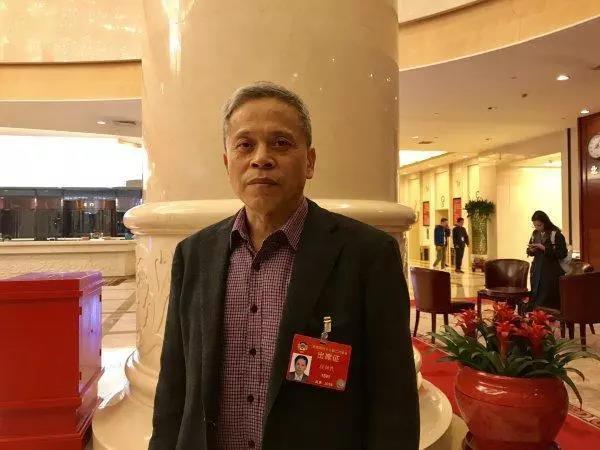Insights of ZJU scientists on the government report II
[Editor's Note: During the “two sessions” of the National People’s Congress and Chinese People’s Political Consultative Congress, Premier LI Keqiang delivered the 2019 Government Work Report, which has generated many headlines. What do ZJU scholars think about the new policies proposed in the Report?]
“We must fully respect and trust our researchers. ”
“We will work hard to cut red tape to enable researchers to concentrate on the pursuit of learning, innovation, and breakthroughs.”
– Highlights from the Report

Upon hearing these uplifting words, Prof. DUAN Shumin, member of the CPPCC National Committee, fellow of the Chinese Academy of Sciences and dean of the Faculty of Medicine, was flushed with excitement. “I was among the first batch of students after the restoration of Gaokao in 1977. The National Science Conference held in March 1978 marked a turning point in history in Chinese scientific community. The spirit of overcoming all difficulties still inspires us in this new era.” In this early spring, DUAN Shumin talked about the cultivation of research talents and the future of artificial intelligence in Beijing.
CHEN Ning (Reporter from Zhejiang Daily): As is mentioned in the Report, China has the largest pool of scientific and technological personnel in the world. You have been focusing on the cultivation of researchers in institutions of higher learning. What kind of environment do you think will help bring into full play the role of this largest-scale team?
DUAN Shumin: To my way of thinking, the ecology of talent cultivation is remarkably important. With increasing improvement on the domestic research environment, the scope of talent cultivation in the universities and institutes can be more diverse and relevant policies and financial support can be more flexible.
How can universities and research institutes attract more talents and make the most of talent pooling? I think a stable assessment system for scientific and technological personnel is the foundation. For example, we should rely on peer experts to establish standardized criteria on the evaluation of researching achievements, personnel performance and the application of research funds.
CHEN: Now that you’ve mentioned the ecology of talent cultivation, what do you think are some of the best practices in Zhejiang?
DUAN: Top-notch talents are the propellant of high-caliber scientific research. Zhejiang Province has been laying much stress on the cultivation of high-end scientific and technological personnel and has thus reaped some fruits. For example, Zhejiang Lab is established to help Zhejiang become a global center for research in some emerging fields.
These years, Zhejiang University has been ranking high in the number of recruited young talents. Generous support from the government plays a key role here. This practice should be further promoted because researchers look forward to a flexible and liberal scientific environment where they are able to bring into full play the spirit of exploration and unleash the power of innovation.
CHEN: In addition to these external factors, what should researchers do to make more contributions to society and mankind?
DUAN: Their personal efforts are of vital importance. As I always put it, anyone can do great things, be he an academician or an ordinary worker.
I majored in medicine in university, and many of my classmates are committed to the cause of treating diseases and saving people. I feel that there is nothing more fulfilling than saving lives. They put in considerable efforts and make great contributions to society.
I am a constant advocate of the idea that researchers should be able to be patient and guard firmly against rash action. In universities and research institutes, it is quite normal for a project to last for 5 or even 10 years. In the course of research, researchers must have enough courage and perseverance to concentrate on the pursuit of learning even in the face of adversity. An outstanding researcher needs to be well-equipped with scientific, independent and analytical thinking, and above all, a strong sense of responsibility to society.
CHEN:The Report mentions that “we will continue to pursue innovation-driven development and foster new growth drivers” and “we will strengthen R&D and the application of big data and artificial intelligence technologies.” What do you think is the future of artificial intelligence?
DUAN: Artificial intelligence holds great promise because it is not only a cutting-edge domain, but it will also transform people’s lifestyles tremendously. In the future, we will see the evolution of artificial intelligence with the more enormous computing power, the reduction of energy consumption by several orders of magnitude and the “super power” of the human mind, and so on.
With these technologies, scientists have felt the pulse of a new era. In the fields of brain science and brain-inspired intelligence, we are lining up at the same starting line with many technological powers, and the window of opportunities has been opened. It is worth mentioning that the current working mode of artificial intelligence is primarily based on big data. Over eons of years, the human brain has evolved an ability to make highly efficient and accurate decisions on the strength of finite information. No algorithm has yet been discovered to empower artificial intelligence in this manner.
This is a short version of original news (in Chinese) published by Zhejiang Daily.